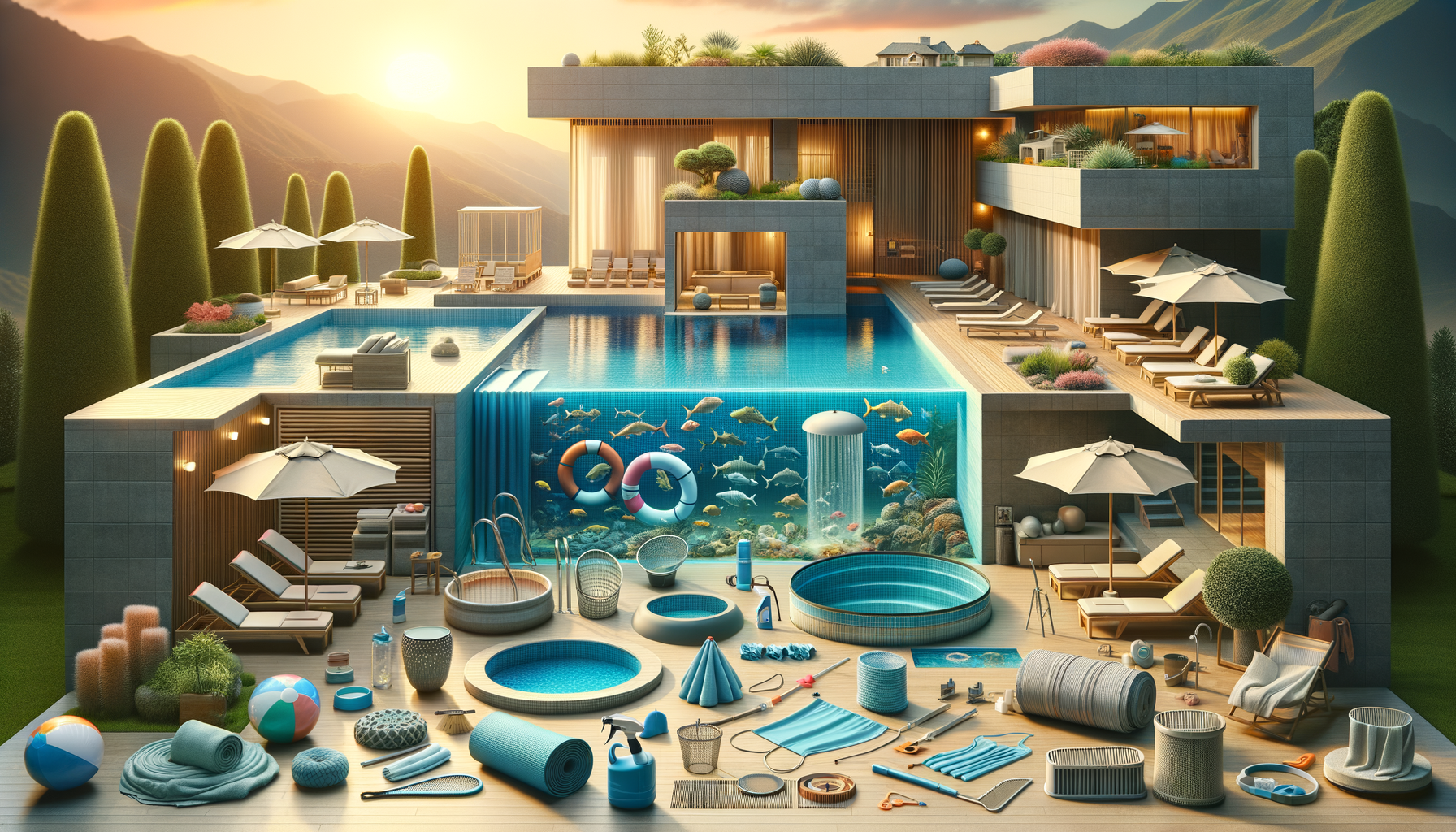
Exploring the World of Pools: From Design to Maintenance
Introduction to Pools
Pools, whether in a residential backyard or a community center, provide an inviting oasis for relaxation, exercise, and social gatherings. They are more than just a body of water; they are a focal point of leisure and luxury. The allure of a pool lies in its ability to transform a space into a personal retreat, offering a sanctuary from the hustle and bustle of daily life. From the soothing sound of water to the refreshing dip on a hot day, pools hold a special place in our hearts and homes.
Types of Pools
There are various types of pools to suit different needs and preferences. The most common types include:
- In-ground Pools: These are permanent pools built into the ground and often made of concrete, fiberglass, or vinyl. They offer a wide range of customization options in terms of shape, size, and depth.
- Above-ground Pools: These are more affordable and easier to install than in-ground pools. They are typically made of metal, resin, or wood and can be dismantled and moved if necessary.
- Infinity Pools: Known for their visual appeal, infinity pools create an illusion of water extending to the horizon. They are a popular choice for properties with stunning views.
- Lap Pools: Designed for exercise, lap pools are long and narrow, providing ample space for swimming laps.
- Natural Pools: These pools use natural filtration systems and landscaping to create a more eco-friendly swimming environment.
Each type of pool has its advantages and considerations, making it important to evaluate your specific needs and budget before deciding on a pool type.
Design and Construction Considerations
The design and construction of a pool require careful planning and consideration. Key factors include:
- Location: The pool’s location should maximize sunlight exposure while considering privacy and safety. Proximity to the house and utilities is also important for convenience.
- Materials: The choice of materials affects the pool’s durability, maintenance needs, and aesthetic appeal. Concrete offers flexibility in design, while fiberglass provides a smooth finish and low maintenance.
- Features: Additional features such as waterfalls, lighting, and heating can enhance the pool experience but may also increase costs.
- Regulations: Local building codes and regulations must be adhered to, ensuring safety and compliance throughout the construction process.
Engaging with a professional pool designer or contractor can help navigate these considerations, ensuring a pool that meets both your aesthetic desires and functional needs.
Pool Maintenance and Safety
Maintaining a pool involves regular upkeep to ensure its longevity and safety. Key maintenance tasks include:
- Water Quality: Regular testing and balancing of pool chemicals, such as chlorine and pH levels, are crucial to prevent algae growth and ensure safe swimming conditions.
- Cleaning: Skimming debris, vacuuming the pool floor, and brushing the walls help maintain cleanliness and prevent stains.
- Equipment Maintenance: Regular inspection and servicing of pumps, filters, and heaters ensure efficient operation and prevent costly repairs.
- Safety Measures: Installing barriers, pool covers, and safety alarms can prevent accidents, especially in households with children.
Consistent maintenance not only preserves the pool’s aesthetic appeal but also extends its lifespan and ensures a safe environment for swimmers.
The Benefits of Owning a Pool
Owning a pool offers numerous benefits that enhance the quality of life. These include:
- Recreation and Relaxation: Pools provide a space for fun and relaxation, offering a convenient escape from daily stressors.
- Health and Fitness: Swimming is an excellent form of exercise, promoting cardiovascular health, muscle strength, and flexibility.
- Social Gatherings: Pools serve as a hub for social interaction, allowing for memorable gatherings with family and friends.
- Increased Property Value: A well-maintained pool can enhance the aesthetic appeal and value of a property.
While pools require an investment of time and resources, the rewards they offer in terms of enjoyment, fitness, and social connection make them a valuable addition to any home.

